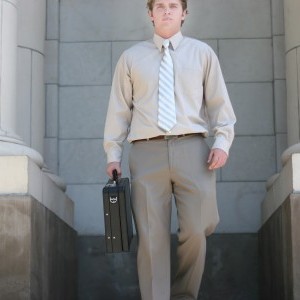During the winter months, Chicago pedestrians face a variety of challenges that serve to make their trip more dangerous. One of these hazards is the accumulation of snow and ice on the sidewalks. A change to the Municipal Code (4-4-310 & 10-8-180) went into effect in November 2015, making the removal of snow and ice from adjacent sidewalks the responsibility of business owners.
Unsafe sidewalks pose challenges to all walkers. Those who are very young, elderly, or disabled face increased mobility issues when winter precipitation isn’t cleared. Chicago’s new regulations showcase the idea that safe sidewalks are a community responsibility, and require everyone to do their part of the task.
Responsibility for Snow and Ice Removal
The new regulations affect every business owner, property owner, homeowner, and renter in Chicago. For rented commercial properties, a lease may include that the tenant is responsible for snow and ice removal; if this is unclear, the tenant should ask for clarification as soon as possible to avoid fines for failing to clear the sidewalk.
Timing for Snow and Ice Removal
Snow must be cleared as soon after it finishes falling as is possible. Snow falling between the hours of 7 a.m. and 7 p.m. must be cleared no later than 10 p.m. that same evening. Snow falling from 7 p.m. to 7 a.m. has to be removed no later than 10 a.m. These times are enforced seven days a week. No matter when snow falls, it must be removed quickly.
Complying with New Regulations
For businesses to be in compliance with the new regulations, the adjacent sidewalks should be cleared to a width of five feet. This includes crosswalk ramps. Snow may not be shoveled into areas like bus stops or pads, parking spaces, bike lanes or racks, or anywhere it may impede the regular flow of any type of traffic. Failure to comply can result in fines totaling up to $500.
Limiting Liability
Winter weather offers many opportunities to become liable for slip and fall injuries, especially in light of the new Municipal Code changes in Chicago. In order to limit liability for this type of injury, it’s important to remove snow and ice in a timely manner and carry liability insurance. However, should a slip and fall claim be made, business owners should enlist the help of a commercial attorney, even when insurance is in place.









